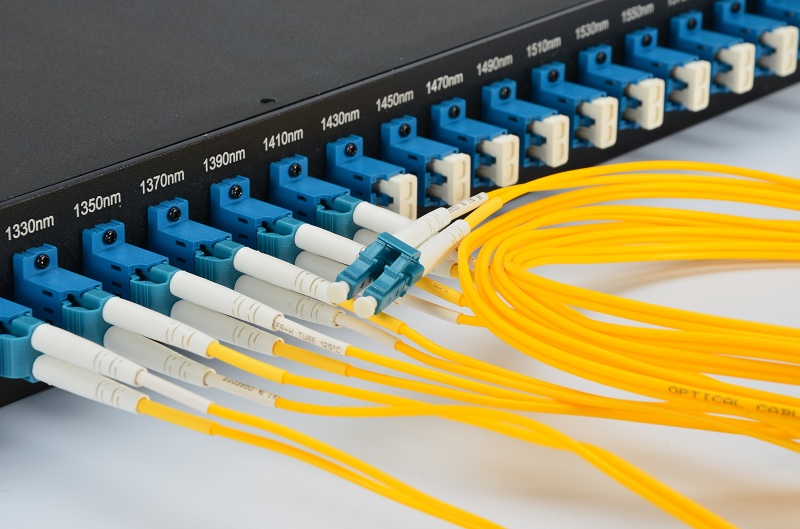In the telecommunication networks, fiber optic connector is a key component to provide a mechanical connection for the two fiber cables and align both cores precisely. There are various kinds of fiber optic connectors, such as LC, ST, SC, FC, MPO, MTRJ, among which the LC connector is the most common type. They’re terminated on the end of fiber cables, forming fiber jumpers, like SC SC patch cords, SC to LC fiber patch cable, LC to ST fiber patch cable or LC patch cord. The LC patch cord can be further divided into LC to LC multimode simplex and LC to LC multimode duplex one, for LC connector can be both simplex and duplex. This passage will focus on the LC duplex connector which is widely adopted in fiber optic connectivity of today's LANs (Local Area Networks) and data center cabling.
The standard LC connector, namely the traditional type, was developed by Lucent Technologies. It is designed with a retaining tab mechanism that is similar to the RJ45 connector. The body of a standard LC connector is a squarish shape, which is similar to an SC connector. Thus, LC connector is also called mini SC connector. Standard LC duplex connector is LC connector in a duplex configuration with a plastic clip. The ferrule of an LC connector is 1.25 mm. As the basic type, standard LC duplex connectors are universal in various fiber optic network applications.

The LC duplex uniboot connector is two LC connectors encased in a common housing with one boot, terminated on a single twin-fiber round cable. This type of connector LC duplex connector is more compact compared to standard LC duplex connector. Fiber patch cables terminated with uniboot LC duplex connectors are ideal for high-density cabling applications, for they greatly reduce fiber counts and cable management space. And you need to know that the boots of an LC duplex connector can be configured with various versions according to different requirements. In addition to standard connector boots and uniboots, there are mini boots, BTW (Behind the Wall) boots, short boots, and 45 or 90 degree angel boots in the market.
If you have ever released LC duplex connectors from patch panels in high-density cablings, you might know how difficult it can be. In a high-density cabling, thumbs and forefingers have hard access to pulling connectors. LC-HD duplex connectors are ideal solution to this issue. With a flexible "pull-tab" or "push-pull tab", the LC-HD duplex connector can be disengaged easily from densely loaded panels without using special tools, which gives users easy accessibility in tight areas of high-density data center applications. And LC-HD duplex connectors with the uniboot design are more suitable to high-density cabling applications.

The mini-LC duplex connector is a variation of standard LC connector. It uses current industry-standard LC connectors but allows closer ferrule spacing by adopting the duplex clip (usually with color coding). Mini-LC duplex connector has a reduced center spacing of 5.25 mm compared to a standard LC duplex connector of 6.25 mm. This type of LC duplex connector is designed to operate with the Mini SFP modules and provides a higher density deployment for data center equipment.
Keyed LC duplex connector assemblies add more colors to the LC connector world as they use 12 color-coded keyed designs. Each color of keyed LC duplex connectors represents a unique keyed pattern. And each keyed design only allows its matched color-coded adapter to be mated. Keyed LC duplex connector can help to segregate or identify parts or paths within a network infrastructure, as well as to reduce the risk of accidental or malicious network access, particularly in shared access areas or in secure hierarchical environments.
LC duplex connectors come in many different varieties. With the increasing requirements and the development of technology, there will be more new members to join this family. Each of them has its unique features and functionality. Choosing which type of LC duplex connector mainly depends on your applications and particular needs. Hopefully, reading this passage can help you make a better decision.









